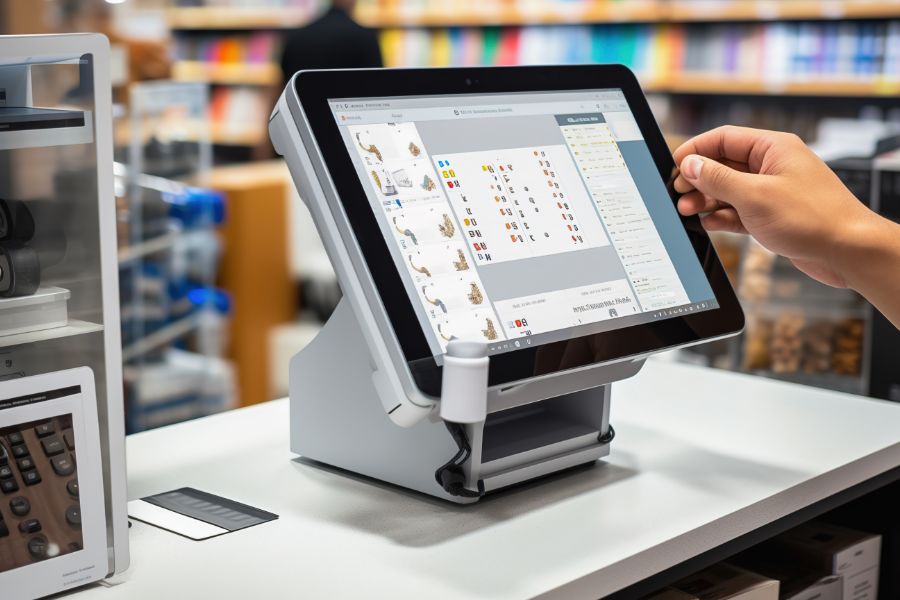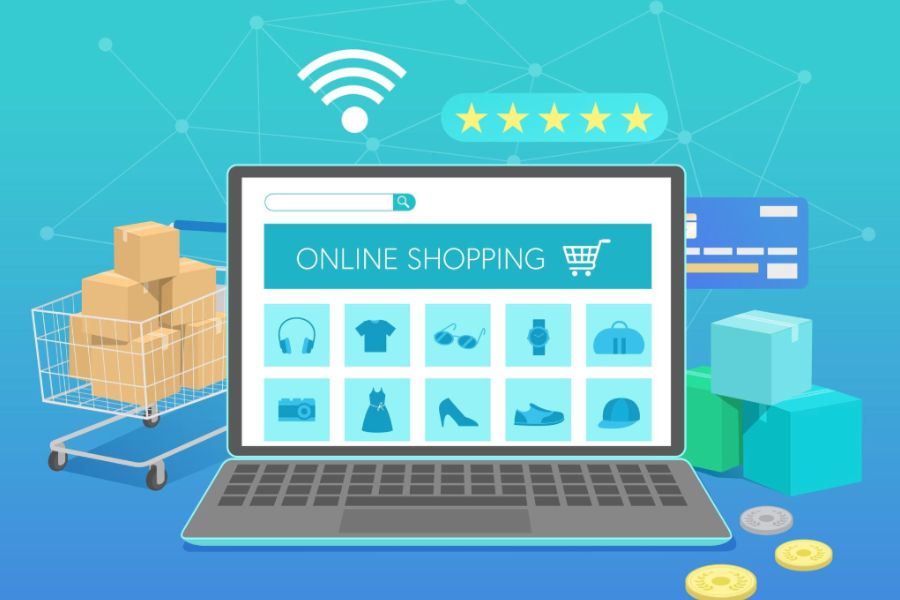In a market where branding and customization hold the key to customer loyalty and business identity, white label POS software emerges as a powerful tool for businesses. Unlike standard POS systems, white label solutions allow you to brand the interface and features as your own, offering a seamless customer experience that aligns with your business’s aesthetic and values. This guide delves into why selecting the right white label POS software is not just about the technology but about finding a solution that aligns perfectly with your business strategy. This article will discuss the critical features to look for and provide insights on how to match these systems with your specific operational needs, ensuring that your investment adds true value and competitive edge to your business.
Importance of choosing the right white label POS software for businesses
White label POS software refers to a customizable point-of-sale solution developed by one company but rebranded and resold by another under their own brand.
This type of software allows businesses to leverage existing technology without the need for extensive development, providing a cost-effective and efficient solution for managing sales transactions.
Selecting the appropriate white label POS software is crucial for businesses looking to optimize their operations and enhance customer satisfaction. By choosing the right solution, businesses can enjoy the following benefits:
- Cost savings: Investing in white label POS software eliminates the need for businesses to develop their own solution from scratch, saving both time and money associated with software development and maintenance.
- Customization: White label POS software offers businesses the flexibility to customize it to match their brand identity and specific operational requirements. This customization ensures seamless integration with existing systems and workflows, enhancing overall efficiency.
- Scalability: A well-chosen white label POS software should be scalable, allowing businesses to expand their operations without facing limitations imposed by the software. Scalability ensures that the POS system can accommodate growing transaction volumes and support additional features as the business grows.
- Enhanced customer experience: With the right white label POS software, businesses can improve the overall customer experience by streamlining the checkout process, offering personalized promotions, and providing access to real-time inventory information. A smooth and efficient POS system contributes to increased customer satisfaction and loyalty.
- Competitive advantage: Utilizing white label POS software enables businesses to stay competitive in today’s fast-paced market by leveraging advanced features and functionalities. By adopting innovative technology, businesses can differentiate themselves from competitors and attract more customers.
Key features to consider for a white label POS software
Before exploring the specifics, it’s important to understand the key features to consider when selecting a white label POS software solution:
- Customization capabilities
Customization capabilities are crucial when selecting white label POS software. Businesses need a solution that allows them to tailor the interface, branding elements, and functionalities to align with their unique brand identity and operational requirements. The ability to customize the POS system ensures consistency across all customer touchpoints and enhances the overall user experience. From adjusting color schemes and logos to adding specific features tailored to industry needs, robust customization capabilities empower businesses to create a POS solution that reflects their brand and meets their specific needs.
- Integration with existing systems
Seamless integration with existing systems is essential for maximizing efficiency and minimizing disruption to business operations. A white label POS software should be compatible with other software and hardware components used within the business, such as inventory management systems, accounting software, and payment processors. Integration capabilities enable data synchronization, streamline workflows, and provide a unified view of business operations. By choosing a POS solution that integrates seamlessly with existing systems, businesses can avoid costly and time-consuming manual data entry, reduce errors, and improve overall operational efficiency.
- Scalability
Scalability is a key consideration for businesses planning for future growth and expansion. A white label POS software should be scalable to accommodate increasing transaction volumes, support additional users, and adapt to evolving business needs. Scalability ensures that the POS system can grow with the business without requiring a complete overhaul or replacement. Whether opening new locations, expanding product offerings, or entering new markets, a scalable POS solution provides the flexibility and agility businesses need to succeed in a dynamic business environment. Additionally, scalable POS software often offers modular features or subscription-based pricing models, allowing businesses to scale up or down based on demand without incurring unnecessary costs.
3 Steps to select the right white label POS software
Assessing your business needs
Assessing your business needs: before embarking on the selection process for a white label POS software, it’s essential to conduct a thorough assessment of your business needs. This step involves evaluating various aspects of your business operations and identifying specific requirements that the POS software must meet.
Here are key considerations for assessing your business needs:
- Transaction volume: Determine the average and peak transaction volumes your business experiences daily, weekly, and monthly. This information will help you choose a POS system capable of handling your current and future transaction volumes efficiently.
- Industry requirements: Different industries have unique POS requirements. Whether you operate a retail store, restaurant, salon, or any other type of business, consider the industry-specific features and functionalities that are essential for your operations. For example, a restaurant may need table management and menu customization capabilities, while a retail store may require inventory management and customer loyalty programs.
- Business size and scale: Consider the size and scale of your business, including the number of locations, employees, and products/services offered. A scalable POS solution is essential for accommodating growth and expansion, ensuring that the software can grow with your business without limitations.
- Hardware compatibility: Assess your existing hardware infrastructure, such as POS terminals, barcode scanners, receipt printers, and payment terminals. Ensure that the white label POS software you choose is compatible with your current hardware or can integrate seamlessly with new hardware if needed.
- Budget constraints: Define your budget for implementing a white label POS software, including upfront costs, subscription fees, and any additional expenses such as hardware upgrades or training. Consider both the initial investment and long-term costs to ensure that the chosen solution aligns with your budgetary constraints.
- User-friendliness: Evaluate the usability and ease of use of the POS software from both the employee and customer perspectives. A user-friendly interface and intuitive workflows can streamline operations, minimize training time, and enhance overall productivity.
Vendor evaluation
Selecting the right vendor for your white label POS software is a critical step in ensuring the success of your POS implementation.
Consider these aspects when evaluating vendors:
- Reputation and experience: Research the vendor’s reputation in the industry and track record of delivering reliable white-label POS solutions. Look for testimonials, case studies, and reviews from other businesses to gauge their credibility and customer satisfaction levels. An experienced vendor with a proven track record is more likely to provide quality products and reliable support.
- Product features and flexibility: Evaluate the features and functionalities offered by the vendor’s white label POS software. Ensure that the software aligns with your business requirements and offers the necessary customization options to tailor the solution to your specific needs. Look for flexibility in terms of configuration, user interface customization, and integration capabilities to accommodate your unique business processes.
- Technical support and training: Assess the level of technical support and training provided by the vendor. Determine whether they offer comprehensive training programs, documentation, and ongoing support to assist with software implementation, troubleshooting, and updates. A vendor that prioritizes customer support and provides timely assistance can help ensure a smooth transition and optimal performance of your white label POS system.
- Scalability and future growth: Consider the scalability of the vendor’s white label POS software and its ability to support your business’s future growth and expansion plans. Evaluate whether the software can accommodate increasing transaction volumes, additional users, and new features as your business evolves. Choose a vendor that offers scalable solutions and flexible pricing models to adapt to your changing needs without unnecessary costs or disruptions.
- Security and compliance: Security is paramount when selecting a white label POS software vendor. Ensure that the vendor follows industry best practices and compliance standards for data security, such as PCI DSS (payment card industry data security standard). Verify that the software includes robust security features, such as encryption, user authentication, and data backup, to protect sensitive customer and transaction data from cyber threats and breaches.
Testing and implementation
After assessing your business needs and evaluating potential vendors, the next crucial step in selecting the right white label POS software is testing and implementation. This phase involves hands-on experience with the software to ensure it meets your requirements and integrates seamlessly into your business operations.
- Trial period or demo: Many white label POS software providers offer trial periods or demos to allow businesses to test the software before committing. Take advantage of this opportunity to explore the features and functionalities of the POS system firsthand. During the trial period, involve key stakeholders from different departments to gather feedback and ensure that the software meets the needs of all users.
- Usability testing: Conduct usability testing to evaluate the POS software interface’s ease of use and intuitiveness. Test common tasks such as processing sales transactions, managing inventory, and generating reports. Pay attention to factors such as navigation, speed, and accessibility to ensure a smooth user experience for your employees.
- Compatibility testing: Conduct compatibility testing to verify compatibility with your existing hardware and software systems. Test the white label POS software with your POS terminals, barcode scanners, receipt printers, and any other peripherals to ensure seamless integration and functionality. Additionally, ensure compatibility with your operating system, network infrastructure, and other software applications used in your business.
- Data migration and integration: If you are transitioning from an existing POS system, consider the data migration process and integration requirements. Work closely with the white label POS software provider to migrate your data securely and efficiently. Test data migration processes to ensure accuracy and completeness, and verify that the POS software integrates seamlessly with your existing systems, such as inventory management and accounting software.
- Training and support: Prioritize training and support during the implementation phase to ensure a successful rollout of the white label POS software. Provide comprehensive training sessions for your staff to familiarize them with the new system and its features. Additionally, ensure that the white label POS software provider offers robust technical support and assistance to address any issues or challenges that may arise during implementation and beyond.
ConnectPOS’s White Label Partnership Program
ConnectPOS offers a comprehensive white label partnership program designed to empower businesses to enhance their brand presence, control their profit margins, and provide industry-tailored solutions to their clients.
Our white label program comes with a range of key advantages, including:
- Custom branding
With this partnership program, businesses can showcase their own brand identity by customizing the POS solution with their logo, color scheme, and brand guidelines. This allows businesses to maintain consistency across all customer touchpoints and strengthen brand loyalty.
- Control your profit
Our white label program enables businesses to maximize their earnings by offering exclusive licensing discounts and the flexibility to set their pricing plans. This puts businesses in control of their profit margins and allows them to create a competitive edge in the market.
- Industry-tailored solutions
ConnectPOS understands that different industries have unique requirements, which is why our white label POS solution is tailored to meet the specific needs of high-risk sectors such as cannabis, firearms, vapes, and adult industries. Businesses can leverage industry-specific features and functionalities to better serve their clients.
- Flexible customization
We offer flexible customization options that allow businesses to tailor the POS solution to their specific requirements. Whether it’s adding custom features, integrating with third-party software, or optimizing the POS system according to business needs, our white label program gives businesses the flexibility to create a solution that meets their exact specifications.
- Advanced connectivity
ConnectPOS’s white label POS solution offers advanced connectivity options, including an API-open structure that allows seamless integration with any third-party software. This ensures that businesses can easily integrate the POS solution with their existing systems, expanding beyond basic POS functionalities and enhancing overall operational efficiency.
- Comprehensive training and support
We provide comprehensive training and support to ensure a smooth transition for businesses and their clients. From product training sessions to dedicated technical support, businesses can rely on ConnectPOS for the assistance they need to succeed.
- Enhanced brand presence
Through our white label partnership program, businesses receive tailored marketing and sales kits with their brand guidelines, helping to enhance their brand presence across various platforms. From websites to social media and newsletters, ConnectPOS supports businesses in promoting their brand and effectively reaching their target audience.
ConnectPOS’s white label partnership program offers businesses the opportunity to build a strong brand presence, control their profit margins, and provide industry-tailored solutions to their clients. With custom branding, flexible customization options, and comprehensive training and support, businesses can elevate their brand and succeed in today’s competitive market.
Conclusion
Selecting the right white label POS software is crucial for businesses aiming to optimize operations and boost profitability. With the right solution, businesses can enhance their brand presence, streamline processes, and provide exceptional customer service.
If you are interested in ConnectPOS’s white label partnership program, please contact us.



